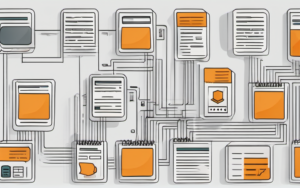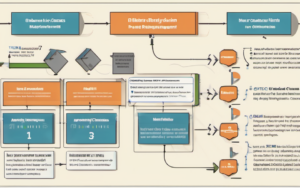Imagine a world where transactions are secure, transparent, and efficient. This is the promise of blockchain technology, which is rapidly transforming businesses across various industries. Blockchain transactions are revolutionizing the way we conduct business, offering numerous benefits and opening up new opportunities.
What is Blockchain?
At its core, blockchain is a distributed ledger technology that records and verifies transactions across a network of computers. It’s like a digital book of accounts that is shared and synchronized among all participants. Each transaction is recorded in a block, which is then added to a chain of previous blocks, creating an immutable and transparent record.
Blockchain in Business Transactions
The decentralized and secure nature of blockchain makes it ideal for various business transactions. It eliminates the need for intermediaries, reduces the risk of fraud, and improves trust among parties involved. This is particularly beneficial for businesses that rely on complex supply chains, cross-border payments, or sensitive data sharing.
Real-World Applications of Blockchain
Supply Chain Management
Blockchain technology can revolutionize supply chain management by providing real-time visibility into the movement of goods.
Tracking Products
Each product can be assigned a unique identifier that is recorded on the blockchain, allowing businesses to track its origin, location, and movement throughout the supply chain. This provides valuable insights into the entire process, improving efficiency and reducing the risk of counterfeiting.
Improving Transparency
Blockchain’s decentralized nature ensures transparency and accountability at every stage of the supply chain. All stakeholders can access the same information, eliminating the need for manual reconciliation and reducing the risk of errors or disputes.
Financial Services
Blockchain is transforming financial services by enabling faster, more secure, and cost-effective transactions.
Cross-Border Payments
Blockchain facilitates cross-border payments by eliminating the need for traditional intermediaries, such as banks. This reduces transaction fees and processing time, making it a more efficient and cost-effective solution for global businesses.
Digital Asset Management
Blockchain can be used to manage digital assets, such as securities, intellectual property, and digital currencies. Its secure and transparent nature ensures the authenticity and ownership of these assets, reducing the risk of fraud and counterfeiting.
Healthcare
Blockchain technology is revolutionizing healthcare by providing secure and efficient ways to manage patient data.
Secure Patient Records
Blockchain can be used to create a secure and tamper-proof record of patient medical history. This ensures patient privacy and reduces the risk of data breaches, while also providing easy access to authorized personnel.
Efficient Data Sharing
Blockchain facilitates secure and efficient data sharing among healthcare providers. This allows for better coordination of care, improved diagnosis, and more effective treatment plans.
Benefits of Blockchain in Business
Increased Transparency
Blockchain provides a transparent record of all transactions, which can be accessed by all participants. This eliminates the need for trust in a central authority and fosters greater collaboration among stakeholders.
Enhanced Security
The decentralized nature of blockchain makes it extremely secure. Transactions are encrypted and tamper-proof, reducing the risk of fraud and data breaches.
Reduced Costs
Blockchain can significantly reduce the cost of transactions by eliminating the need for intermediaries and streamlining processes.
Improved Efficiency
Blockchain automates many processes, making transactions faster, more efficient, and less prone to errors.
Challenges of Blockchain Adoption
Scalability
Blockchain technology faces challenges in scaling to handle large volumes of transactions. As the number of users and transactions increases, the network can become congested, leading to delays and higher costs.
Regulation
The regulatory landscape surrounding blockchain is still evolving, creating uncertainty for businesses considering its adoption. Governments and regulatory bodies are working to establish clear guidelines and standards for blockchain-based applications.
Interoperability
Different blockchain platforms are not always compatible with each other, hindering the seamless flow of information and transactions across different networks. Interoperability is crucial for widespread adoption of blockchain technology.
The Future of Blockchain in Business
Emerging Applications
Blockchain technology is constantly evolving, leading to new and innovative applications in various industries.
Growth and Adoption
As the technology matures and regulatory frameworks evolve, blockchain is expected to see significant growth and adoption across businesses of all sizes. Its ability to enhance security, transparency, and efficiency will continue to attract businesses seeking to streamline operations and improve their bottom line.
Summary of Key Points
Blockchain is a revolutionary technology that is transforming business transactions by providing a secure, transparent, and efficient way to record and verify information.
Final Thoughts
The potential of blockchain technology for businesses is enormous. As the technology continues to evolve, we can expect to see even more innovative applications emerge, further disrupting industries and transforming the way we do business.




